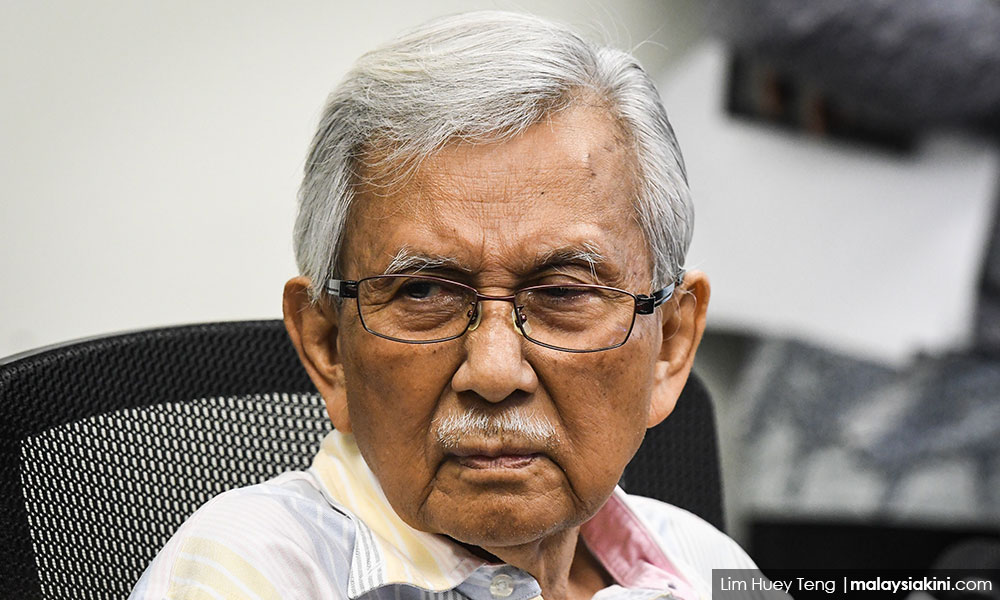
The constitutional status of the Council of Eminent Persons has already been called into question especially when the chairperson of the council, Daim Zainuddi, is in a position in which he is able to call up judges and even represent the government in negotiating with the Chinese government over their investments in Malaysia.
Now it has been reported that the Perak government has established the State Economic Advisory Council (SEAC) with “eminent persons,” including MK Land Bhd executive chairperson Mustafa Kamal, KL Kepong Bhd managing director Lee Ooi Hian, and business tycoon Koon Yew Yin, the co-founder of IJM Bhd, Gamuda Bhd and Mudajaya Bhd.
There is a gross conflict of interest with such arrangements when these corporate leaders still have interests in the local and international corporate scene.
It is well-known that Daim has corporate and banking interests all over the world. His business interests extend beyond banking to other key sectors of the country’s economy such as plantations, manufacturing, retailing, property development and construction. As stated in The Star:
“According to sources familiar with Daim’s movements... it has always been difficult to pinpoint the tycoon’s intricate web of business interests, which are held mainly through private entities – some information on which is not easily accessible. It has also been said that some of his business interests are held through proxies.”
Preserving our forests
As for the newly appointed Perak state advisory council, Kuala Lumpur Kepong Berhad is a Malaysian multinational whose core business is plantations (oil palm and rubber). The company is Malaysia's third-largest palm oil producer with plantations that cover thousands of hectares in West and East Malaysia, as well as in Indonesia.

The company has diversified into manufacturing (oleochemicals, derivatives and speciality chemicals), property development and retailing (personal care products, toiletries and fine foods).
At a time when the new Pakatan Harapan government is supposed to be committed to a truly green economy and the preservation of Malaysia’s forest reserves, the gross conflict of interests between a state adviser with such vast plantation interests is jarring, to say the least.
The record shows that capitalists whose only outcome is to maximise profits have no respect for the environment or the people.
In the 'new Malaysia', all local people must be consulted before any projects are started and all permanent forest and wildlife reserves must be gazetted. We want projects that respect and do not destroy forests or Orang Asal land.
Efficient and affordable public transport
When we look at another appointed 'adviser' in the Perak State Advisory Council, Gamuda is one of the largest Malaysian infrastructure companies and has undertaken various projects, both locally and overseas – like the construction of Klang Valley MRT lines, highways, airport runways, railways, tunnels, water treatment plants, dams, infrastructure concessions and the development of new townships all over Malaysia.

It is currently tendering for the controversial Penang Transport Master Plan and other questionable projects in the country including some frozen by the Harapan government.
Perak no doubt has such infrastructural plans as well. Is it therefore not a glaring conflict of interest to have an influential Gamuda stakeholder advising the Perak state government?
Where are the workers’ representatives?
The Harapan manifesto promised to advance the interests of Malaysian workers. So where are the workers’ representatives in the councils, advising the federal and state governments on how to open up enterprises to democratic decision making and control by the people affected, and to implement good labour and environmental policies?
Real democracy extends to workers having greater control over their working lives and the 'new' government should ensure that the right of all workers to unionise is a universal right and that there is a progressive guaranteed living wage for all workers, including foreign workers.
Workers must be given the right to association, full employment, retrenchment, pension fund and workers’ representatives should be part of decision-making in all enterprises especially GLCs.
There should also be a retrenchment fund for laid-off workers and universal pension for citizens aged over 70 years. All these workers’ interests were neglected by the last BN government.

Do the Harapan federal and state governments really think that their eminent persons in the 'advisory' councils who feature in Forbes 50 can double up as workers’ champions?
Redistribute wealth fairly
The Harapan government also promised to tackle the increasingly serious gap in income inequality in the country. This can only be addressed through progressive taxation on the high-income earners, their wealth and property and effective tax laws to ensure there are no tax loopholes for the super-rich.
Transfer pricing that enables the largest corporations to stash their profits in tax-free havens like the Cayman Islands has to be curtailed by proper legislation.
Capital allowances and tax holidays must be reviewed, while a tax should be imposed on all international financial transactions and hedge funds. Are Malaysians convinced that these super-rich corporate leaders in the councils of eminent persons will be in the forefront of the campaign to redistribute wealth in our country?
Malaysians voted in the last general elections for real reforms and the end to kleptocracy, plutocracy and autocracy. They certainly did not expect to have unelected 'advisers' engendering a gross conflict of interests sitting in the government.
KUA KIA SOONG is adviser to Suaram, a human rights advocacy NGO. -Mkini
No comments:
Post a Comment
Note: Only a member of this blog may post a comment.